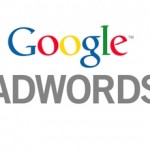 Mountain View, California — Google Inc. on Wednesday took another step in the online rivalry, manipulating its Web video strategy by announcing its intention to acquire On2 Technologies Inc., a creator of high-quality video compression technology, for $106.5 million, stepping up efforts to foster the spread of Internet video.
Mountain View, California — Google Inc. on Wednesday took another step in the online rivalry, manipulating its Web video strategy by announcing its intention to acquire On2 Technologies Inc., a creator of high-quality video compression technology, for $106.5 million, stepping up efforts to foster the spread of Internet video.
On2 Technologies, a popular brand, but financially less fortunate, develops video compression technology. The acquisition, if it is approved by stockholder and regulatory muster, is expected to close in the fourth quarter of this year.
“Today video is an essential part of the Web experience, and we believe high-quality video compression technology should be a part of the Web platform,” said Sundar Pichai, Vice President of product management at Google, in a statement. “We are committed to innovation in video quality on the Web, and we believe that On2’s team and technology will help us further that goal.”
The stock deal, which constitutes a 57 percent premium to On2’s Tuesday closing price, is Google’s first acquisition of a publicly traded company.
On2’s technology shrinks video files, making it easier to send video across the Internet. It has become increasingly important as more people watch and share videos online.
Google engineering director Jeremy Doig said in a statement issued Wednesday morning that he could not talk specific product plans, but that Google was in favor of improved Web video.
“Because we spend a lot of time working to make the overall web experience better for users, we think that video compression technology should be a part of the web platform,” Doig wrote. “To that end, we are happy to announce today that we have signed a deal to acquire On2 Technologies, a leading creator of high-quality video compression technology.”
According to Dan Olds, an analyst with The Gabriel Consulting Group, informed Computerworld that the acquisition is a right decision for a company that needs cutting-edge video. “On2 has some of the best video compression and encoding technology going,” he said. “This technology is going to be very useful for Google. Video compression is a big deal when you serve up as much video as Google does.
“Compression means more video per spindle of disk and less bandwidth cost to serve it out to users. The On2 stuff, plus their people, will help Google keep YouTube cutting edge, and having that technology incorporated into Chrome will pay some dividends, too.”
Google, which acquired the popular video sharing site YouTube for $1.65 billion in 2006, could employ On2’s software to pull down the cost of producing and distributing Internet video.
“As you know about how significant video delivery is for Google, controlling the mechanisms for compression is probably a next logical step," said Thomas Weisel Partners analyst Christa Quarles.
Although YouTube is the highly populated U.S. video site, but Google has lost money on it because it costs a lot to stream billions of videos, with only a tiny swathe of them being supported by advertising.
Moreover, Google may also be considering promoting On2’s more than 2 billion Video Vpx codecs, which includes: On2 VP6 for Adobe Flash Player and JavaFX, On2 VP7, and On2 VP8, as an alternative to H.264 and Ogg Theora, the open video format that Mozilla is supporting in Firefox 3.5.
According to On2, VP8 video uses about 40% less data than H.264 video. On a site like YouTube, which serves hundreds of millions of videos per day, any bandwidth savings is significant. Customers include Adobe, AOL, Skype, Nokia, XM Satellite Radio, Sony, Yamaha, TI, LSI Logic, Analog Devices, VideoEgg, Brightcove, and Cox.
With On2’s video technology, Google could enhance its own software that allows videos to play on PCs and mobile devices, creating a rival to Microsoft Corp.’s Windows Media, Apple Inc.’s QuickTime and Adobe Systems Inc.’s Flash, analysts said.
“In the meantime, we expect nothing to change for our customers and partners,” John Luther, director of marketing at On2, in a blog post. “We will continue to do our best to provide the great technology and service that our customers expect, and we look forward to signing on the next generation of customers to On2 video. We remain as committed as ever to serving you.”
Google declined to elaborate on whether it plans to open-source the company’s technology to accelerate Web video in the browser.
Mike McGuire, VP of research in the media industry advisory services group at Gartner, views the acquisition as one that has broad strategic value.
“Google’s stated mission is to keep things open,” said McGuire. “This is not simply a point solution to do one or two things. This is something to keep Google’s overall operations as efficient as possible. This is going to be an important enabler to do that.”
The companies said they expects the deal to be finalized by the fourth quarter of this year. It is still subject to review by stockholders and all the relevant government agencies.


